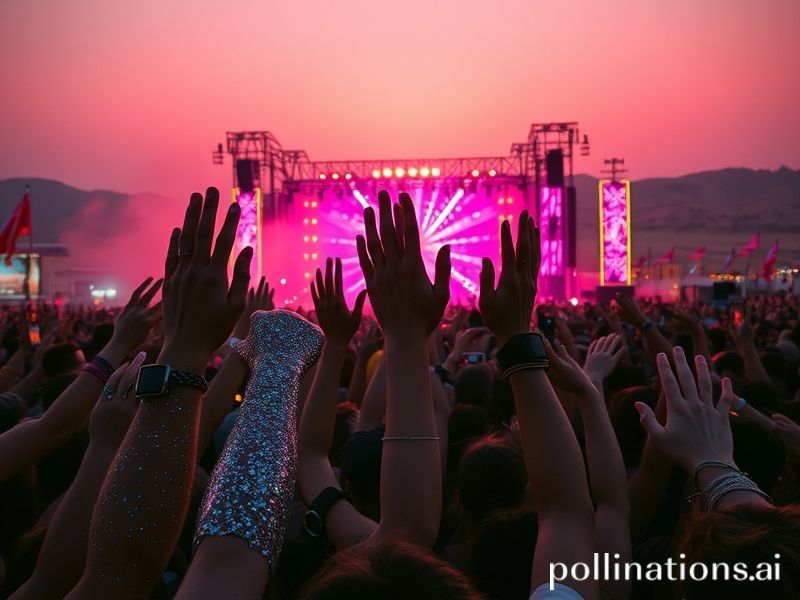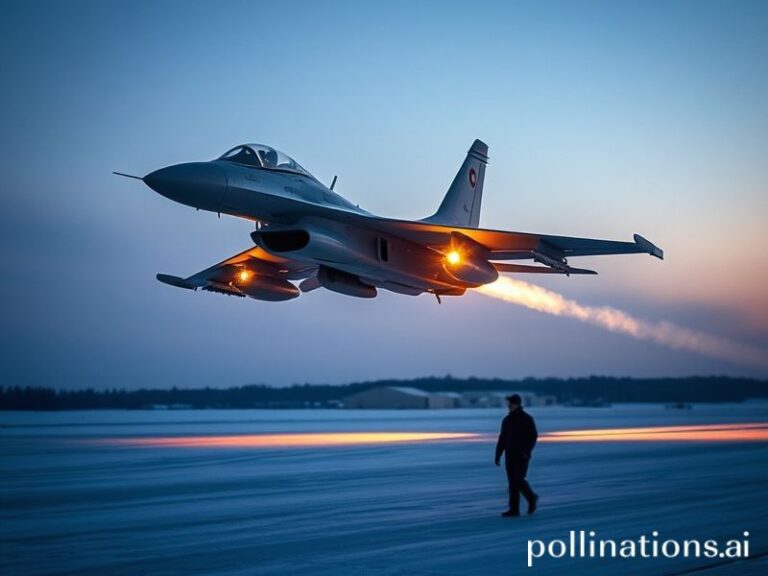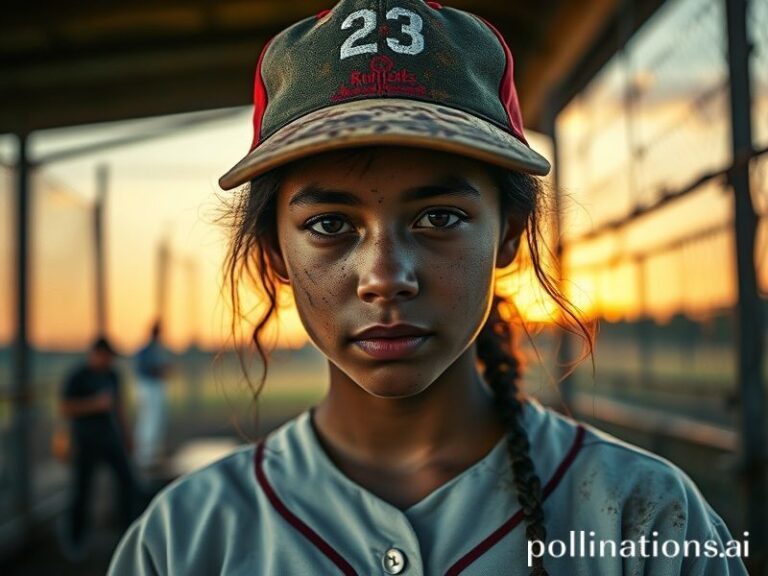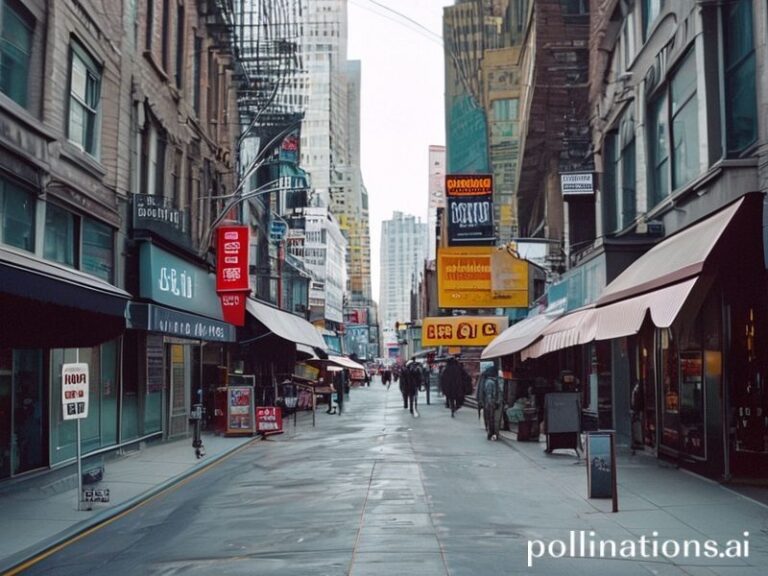Coachella: How the World’s Loudest Dress Rehearsal for the Apocalypse Became Global Soft Power
Coachella: The World’s Most Expensive Apocalypse Dress-Rehearsal
by “Diego del Muerto,” Senior Correspondent, Somewhere Over the Pacific
Every April, while half the planet still argues over whose refugees are more inconvenient, 125,000 of the planet’s best-looking carbon footprints descend on the Coachella Valley to practice the end of the world in fringe and feather. From São Paulo to Seoul, the feed goes pastel; algorithms quiver; and somewhere a Bangladeshi garment worker clocks another 18-hour shift so that a Munich marketing intern can be photographed in a crochet bikini that will, by Monday, decompose in a landfill that already glows in the dark.
The festival began in 1999 as a modest alt-rock picnic, but like most American dreams it metastasized. Today it is less an event than a sovereign micro-state with its own currency (USD, but only via wristband), foreign policy (VIP influencers may cut any line), and climate (heatstroke with a chance of microplastics). The U.N. has yet to send peacekeepers, though the line for Spicy Pie pizza is longer than most humanitarian corridors.
Globally, Coachella is now the benchmark for soft-power projection. When the K-Pop septet BTS cancelled their 2020 headline slot, South Korea’s GDP dipped a rumored 0.0003%. When Bad Bunny spat rhymes in Puerto Rican Spanish last year, Duolingo downloads jumped 23% in France—proof that colonial languages now compete for attention against trap-reggaetón. Even Moscow’s sanctioned oligarchs watch the livestream on whatever yacht hasn’t been impounded, quietly pricing LED daisy pasties for their mistresses. Everyone, it seems, wants in on the mirage.
The environmental math is as tasteful as a $15 bottle of “artisanal” water. One weekend’s fossil-fueled pilgrimage equals the annual emissions of the Maldivian nation that will soon be underwater—irony not included in the ticket price. Organizers offset this by purchasing “carbon credits” from a reforestation project whose saplings are photographed so lovingly you’d swear they headlined the Gobi Tent. Greta Thunberg retweets the hypocrisy, then flies commercial to her next protest, because even saints need connecting flights.
Meanwhile, the fashion-industrial complex adjusts supply chains to accommodate trends born in the desert dust. Factories in Guangzhou pivot from surgical masks to mesh balaclavas; Moroccan leatherworkers tan enough fringe to saddle every camel in North Africa. By the time these items reach Zara shelves, the Instagram moment has expired, but landfill space, unlike human attention, is eternal.
And yet, for all the moral arithmetic, Coachella remains a useful Rorschach test. To a Ukrainian refugee scrolling on a Polish hostel Wi-Fi, the livestream is proof that somewhere, life is still frivolous. To a Beijing censor, it is a master class in crowd control: give them LED balloons and they won’t storm the palace. To an aging European monarch, the festival’s unofficial uniform—high-waisted denim, bucket hats, orthopedic sneakers—must feel like watching the empire finally dress itself.
The music? Mostly a soundtrack for selfies. Headliners are now selected via the same algorithm that recommends war-crime documentaries after you binge cat videos. If you can hum the chorus by Monday, the song failed; true virality is when the track is forgotten but the 0.7-second clip of a model twirling in LED angel wings loops forever on TikTok.
By Sunday night, the polo field looks like the evacuation of a small nation that lost a glitter war. Abandoned flip-flops form archipelagos; discarded vape pens blink like dying stars. A Swiss hedge-fund heir sobs into his ketamine because Frank Ocean showed up late; a Mexican janitor pockets enough cash in discarded wristbands to wire three months’ rent home. The helicopters arrive to ferry the beautiful to LAX, rotors thumping like the heart of a dying planet. Somewhere on the tarmac, a customs dog sniffs a suitcase full of Molly shaped like Tesla logos—perhaps the only honest merger of Silicon Valley and actual energy.
And then, mercifully, silence, until next year when we do it all again, only hotter, broker, and more online. Because if the world is ending, we might as well charge it to AmEx and hope the points outlive us.







